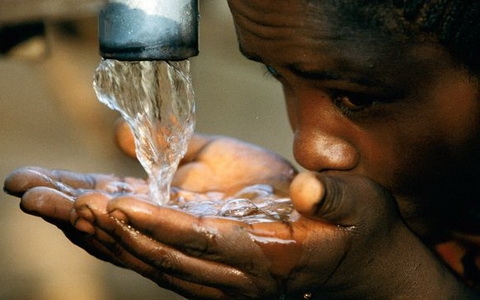Nigeria is a country with abundant water resources; surface water in forms of rivers and creeks are found in almost every area of the country. This is asides groundwater which is also found in excess and higher than in many other sub-Saharan countries. You would expect that a country as this would enjoy unlimited access to safe and drinkable water.
In 2015, it was reported that about 60 million people lacked access to basic water, at the very least. Only about 48% of the population has access to basic drinking water sources.
This is in spite of Nigeria’s tropical weather and surplus water resources. Most Nigerians rely on alternative water supply such as wells and boreholes. These alternative water supply systems are not efficient to guarantee water supply in a country with a large population. Why is there such a lack in a country with abundant water resources? This article covers the problems of water supply in Nigeria.
Problems of Water Supply in Nigeria

Read on below:
Pollution
Pollution is one of the major causes of water scarcity in Nigeria. Most of this pollution is man-made such as waste dumps in rivers and streams. These pollutants contaminate water resources and increase uneven access to water supply in Nigeria. This is especially true of areas such as Niger Delta where there is a bulk of oil exploration in the country and where oil spillages have contaminated water bodies. It is pollutions such as these that has led to the presence of high levels of potentially toxic chemicals such as metals and pesticides, reportedly found in Nigeria’s drinking water. These pollutions affect the quality of water available to Nigerians. Poor water quality is also the primary cause of diseases such as typhoid fever, diarrhoea and dysentery in Nigeria.
Regulation challenges
Nigeria suffers from economic water scarcity as opposed to physical water scarcity. Economic water scarcity is generally traced to bad governance where the country does not have the needed finances to utilize the water resources available which leads to unequal distribution and access to water resources. Water management laws in Nigeria are weak and do not conform to today’s standard. This is because the government has hardly given attention to proper management and conservation of water resources. In Nigeria, agencies and authorities in charge of water supply do not engage with communities and people involved. This eventually leads to a breakdown of water infrastructures in communities. There is also very little coordination between water agencies at federal, state and local level of government. Adequate regulation and proper management of water resources also involves more involvement of stakeholders, more collaboration between various sectors of the economy and involvement of communities and people in planning. In South Africa, for example, the South African National Water Act provides for the basic rights of humans and the environment. The Act prescribes the minimum amount and quality of water to be provided to everyone. This gives the citizens a say in the water sector.
Lack of funds
The responsibility of water supply in Nigeria is shared among the federal, state and local levels of government. The federal government is responsible for managing water resources, the state is responsible for urban water supply; the local governments is responsible for rural water supply. Often times, local governments are not able to participate in financing and investments as they should. The state and federal governments also provide only limited funding. Thus, public water sector is largely financed by investments from donors.
Low water tariffs and low-cost recovery
In Nigeria, the quality of service provided by water agencies are low, together with tariffs, which leads to low-cost recovery. Most water users do not pay their bills which makes the service providers unable to cover the cost of operation. Most water production facilities in Nigeria are rarely in operation due to faulty equipment, or lack of power or fuel. The cost of operation of water agencies is also increased because of the lack of power supply and the money used on diesel and building their own power plants. Low water tariffs and low-cost delivery also leads to poor maintenance of equipment.
The inefficiency of water agencies in Nigeria
Water agencies are not efficient in their services. It is often reported that state water agencies are massively overstaffed and most lack the skill required to provide the needed services.
Lack of investments
The Nigerian government does invest adequately in the water sector. The government currently invests just about N82.5 billion in water while it needs to invest about N215 billion. The current investments cannot meet the needs of the sector in maintaining infrastructure and provide the needed services. With more investments, the functionality of State water agencies can be increased.
Unmetered water supply connections.
In Nigeria, most water supply connections are not metered. Metering ratio also varies across the country. As of 2007, metering ratio varied from 24% in Lagos to about 7% in Katsina. Flat rates for unmetered connections also vary to about N100 in Yobe state. Often times. These revenues can barely cover the costs of supplying water.
Tariff collection
The use of outdated information systems and inconsistent billing practices also adds up to the problem of water supply in Nigeria. In some areas of Nigeria, the revenue collection rate is very low.
Varying tariff adjustments
In Nigeria, each state sets its own water tariff. This is also approved by the State Executive Council through a lengthy procedure. When Water Agencies are unable to secure tariff adjustments and are unable to cover costs of operations, they resort to receiving financial assistance from the governments which oftentimes is unreliable.
The high cost of Private water vendors
In Nigeria, street water vendors charge about 20 times of the charge of water agencies. These ones provide a limited amount of water for a very high charge. The amount paid to street water vendors can supply four to ten times of the volume of water received from them.